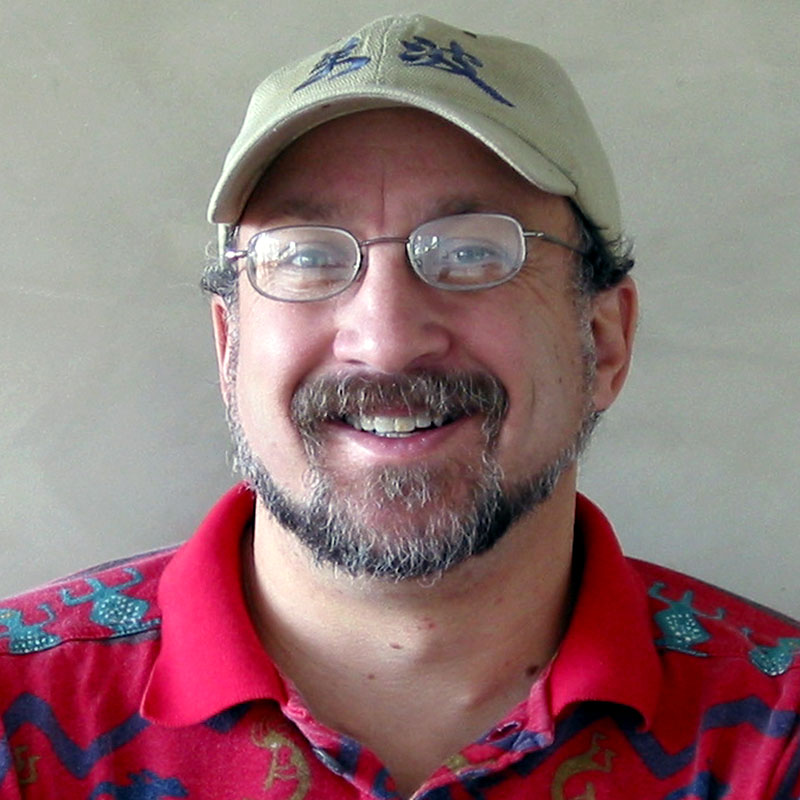
John Miller
Professor
Ph.D. in Economics
Contact
- PH 208D
- 412-268-3229
- 412-268-6938
Education
Ph.D.: University of Michigan, 1989Research
My research focuses on the complex adaptive behavior that emerges in social systems. The goal of this work is to understand the principles by which aggregate patterns emerge from the simple interactions of individual adaptive agents. The nonlinear and disequilibrium nature of complex adaptive systems often necessitates new methodological and theoretical directions. Methodologically, computational methods provide a convenient tool for modeling such systems. Theoretically, standard analytic tools, based on both linearity and equilibrium behavior, may be ill-tuned to further our understanding of complex systems. Thus, new approaches that emphasize nonlinearities and dynamics are needed.To understand the behavior of complex adaptive systems, I have relied on the analysis of computational models composed of interacting artificial adaptive agents. The behavior of each agent in the system is dictated by a simple learning algorithm (e.g., genetic algorithm) that allows the agent to adaptively modify its actions from a set of behaviors rich in possibilities. This paradigm allows the analysis of flexible, yet precise, models of well-defined agents in an environment that can be easily and rapidly replicated and recovered. The ability to interact directly with such open-ended models allows one to quickly generate, develop and test new hypotheses.
Using artificial adaptive agent models, my colleagues and I have been able to analyze some central social phenomena. For example, we have explored the dynamics of political platforms in spatial elections, the emergence of cooperation strategic choice in simple two-person games, and bidding behavior in auction markets. To understand the fundamental dynamics of price formation in simple markets, we designed and organized an international computerized double auction tournament. This tournament allowed us to create an "artificial world" of trading agents in which we explored a variety of theoretical and practical issues.
Complementing the above work, I have also pursued experimental and pure mathematical approaches to many of the above issues. Experimentally, colleagues and I are trying to uncover the rational limits of cooperation. Mathematically, we are working on a precise characterization of the dynamic behavior of complex adaptive systems. This work, which incorporates results from theoretical physics, chemistry, and biology, attempts to uncover new mathematical models that unify seemingly disparate adaptive systems.
Using the methods outlined above, previously inaccessible, yet fundamental, questions are now becoming amenable to analysis.
Publications
John H. Miller and Scott E. Page, Complex Adaptive Systems: An Introduction to Computational Models of Social Life, Princeton University Press, 2007John H. Miller and Scott E. Page, "The Standing Ovation Problem," Complexity, 9 (2004):8-16.
James Andreoni and John H. Miller, "Giving According to GARP: An Experimental Study of Rationality and Altruism," Econometrica, 70 (2002):737--753.
John H. Miller, Carter Butts, and David Rode, "Communication and Cooperation," Journal of Economic Behavior and Organization, 47 (2002):179--95.
Theodore Bergstrom and John H. Miller, Experiments with Economic Principles: Microeconomics 2nd ed, McGraw Hill, 2000 (1997 1st ed).
John H. Miller, "Active Nonlinear Tests (ANTs) of Complex Simulations Models," Management Science 44:6 (June, 1998):820--30.
Ken Kollman, John H. Miller, and Scott Page, "Political Institutions and Sorting in a Tiebout Model," American Economic Review 87:5 (December, 1997):977--992.
John H. Miller, "The Coevolution of Automata in the Repeated Prisoner's Dilemma," Journal of Economic Behavior and Organization 29:1 (January, 1996):87--112.
James Andreoni and John H. Miller, "Auctions with Adaptive Artificial Agents," Journal of Games and Economic Behavior 10 (1995):39--64.
John Rust, John H. Miller, and Richard Palmer, "Behavior of Trading Automata in a Computerized Double Auction Market," in D. Friedman and J. Rust (eds), The Double Auction Market: Institutions, Theories, and Evidence, Addison Wesley (1992):155--98.
Ken Kollman, John H. Miller, and Scott Page, "Adaptive Parties in Spatial Elections," American Political Science Review 86 (December, 1992):929--37.
John H. Holland and John H. Miller, "Artificial Adaptive Agents in Economic Theory," American Economic Review, Papers and Proceedings 81 (May, 1991):365--70.